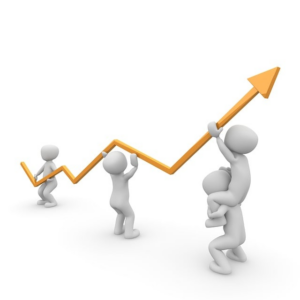Mastering Tech: Mentorship Program for Knowledge and Mindset Wealth
In today's dynamic tech landscape, mentorship programs that combine technical skills with mindset mastery are essential for unlocking individual and organizational potential. These programs cater to the growing need for guidance beyond basi…….
In today's dynamic tech landscape, mentorship programs that combine technical skills with mindset mastery are essential for unlocking individual and organizational potential. These programs cater to the growing need for guidance beyond basic coding, focusing on intellectual curiosity, creative problem-solving, and resilience in a rapidly changing tech environment. By pairing experienced professionals with mentees, these initiatives foster knowledge sharing, personal development, and the cultivation of both technical and soft skills. Successful mentorship requires balancing skill teaching with growth mindset fostering, empowering participants to face industry challenges confidently. The ideal mentors bring relevant expertise and strong communication skills, encouraging mentees to embrace failures as learning opportunities. Creating an engaging, supportive environment with interactive elements is crucial, while measuring success involves assessing knowledge retention and personal growth, including self-reflection and continuous learning.
In today’s rapidly evolving tech landscape, a mentorship program focusing on both technical knowledge and mindset mastery is more crucial than ever. The demand for skilled professionals far outstrips supply, making targeted mentorship programs a powerful tool to bridge the gap. This article delves into the essential components of such a program, from understanding the need for technical mentorship to designing engaging curricula, selecting top-tier mentors, fostering supportive environments, and measuring impactful success—all aimed at unlocking the wealth within individuals’ potential.
- Understanding the Need for Technical Mentorship Programs
- Designing a Curriculum: Balancing Knowledge and Mindset
- Identifying and Selecting Ideal Mentors
- Creating an Engaging and Supportive Environment
- Measuring Success: Assessing Knowledge Retention and Personal Growth
Understanding the Need for Technical Mentorship Programs
In today’s rapidly evolving technological landscape, a mentorship program focusing on both technical knowledge and mindset mastery becomes an indispensable tool for fostering innovation and unlocking the wealth within individuals and organizations. The demand for such programs is driven by the need to bridge the gap between acquiring technical skills and cultivating a growth mindset—essentials for navigating the complexities of modern industries. Many aspiring professionals struggle to find guidance that goes beyond mere instruction in coding, algorithms, or software tools; they seek mentorship that nurtures their intellectual curiosity, encourages problem-solving creativity, and instills resilience in the face of constant technological shifts.
Technical mentorship programs address this gap by pairing experienced professionals with mentees, fostering a culture of knowledge sharing and personal development. By imparting not just technical expertise but also strategies for continuous learning, effective communication, and emotional intelligence, these programs empower individuals to adapt, innovate, and contribute meaningfully to their fields. In essence, they unlock the wealth within—the full potential of every individual—by nurturing both hard skills and soft skills, ensuring that mentees are not just technically proficient but also mentally prepared to thrive in an ever-changing technological environment.
Designing a Curriculum: Balancing Knowledge and Mindset
Designing an effective mentorship program that focuses on both technical knowledge and mindset mastery requires a delicate balance. It’s not enough to simply teach hard skills; fostering a growth mindset is equally vital for leveraging the wealth within individuals. The curriculum should be meticulously crafted to intertwine theoretical concepts with practical applications, ensuring participants gain a solid understanding of their field. This blend encourages them to approach challenges with confidence and resilience.
Moreover, incorporating strategies that promote self-awareness, emotional intelligence, and adaptive thinking allows mentees to navigate the dynamic nature of technology. By balancing knowledge acquisition with mindset development, the program equips individuals not just with technical proficiency but also with the mental tools to thrive in an ever-changing industry, unlocking their full potential and the wealth within themselves.
Identifying and Selecting Ideal Mentors
Identifying and selecting the right mentors is a pivotal step in any mentorship program, especially when aiming to cultivate technical expertise and mindset mastery. The ideal mentor should possess a wealth of relevant knowledge, demonstrated through years of experience and successful projects. They must be able to impart this knowledge effectively, adapting their teaching methods to suit diverse learning styles. A good mentor also cultivates a growth mindset, encouraging mentees to embrace challenges and see failures as opportunities for learning and improvement.
When selecting mentors, consider individuals who not only excel in their technical fields but also demonstrate strong communication skills and a genuine passion for sharing knowledge. This combination ensures that the mentorship experience is both enriching and inspiring. The best candidates will be able to connect with mentees on a personal level, fostering an environment where open dialogue about technical concepts and mindset strategies can thrive. Ultimately, the right mentors will help participants unlock their full potential, turning obstacles into stepping stones towards success.
Creating an Engaging and Supportive Environment
In a mentorship program, creating an engaging and supportive environment is key to unlocking participants’ full potential. A vibrant atmosphere fosters active learning and deepens knowledge retention. This involves incorporating interactive elements like hands-on activities, group discussions, and real-world case studies that engage mentees in the technical skills being taught. Mentors play a pivotal role by offering not just guidance but also encouragement and emotional support, helping their charges to build confidence and resilience.
This supportive ecosystem is where the true magic happens—mentors can inspire a sense of curiosity and a drive for continuous learning. By nurturing a growth mindset, mentees are encouraged to embrace challenges as opportunities for wealth within, rather than obstacles. This mindset mastery is crucial in today’s rapidly evolving tech landscape, ensuring that participants not only keep up with industry trends but also become innovative thinkers who contribute meaningfully to their fields.
Measuring Success: Assessing Knowledge Retention and Personal Growth
Measuring success in a mentorship program is a multifaceted process, especially when focusing on both technical knowledge and mindset mastery. Assessing knowledge retention involves evaluating participants’ understanding and application of learned skills through practical assessments, quizzes, or real-world projects. This helps gauge not just what they’ve learned but how effectively they can implement it, ensuring the wealth within their acquired knowledge translates to tangible results.
Personal growth is equally important. Mentorship programs should foster environments that encourage self-reflection, goal setting, and continuous learning. Regular check-ins, feedback sessions, and personal development planning allow mentees to articulate their progress, identify areas of improvement, and cultivate a growth mindset. This holistic approach ensures not just technical proficiency but also the internal drive for ongoing learning and adaptation, unlocking the true potential for wealth within each individual.
A mentorship program that holistically addresses both technical knowledge and mindset mastery can unlock immense potential for individuals seeking to thrive in today’s tech-driven world. By carefully curating a curriculum that balances these aspects, selecting compassionate and expert mentors, fostering an engaging environment, and consistently measuring success through knowledge retention and personal growth, organizations can empower mentees to discover the wealth within themselves and achieve remarkable outcomes.







